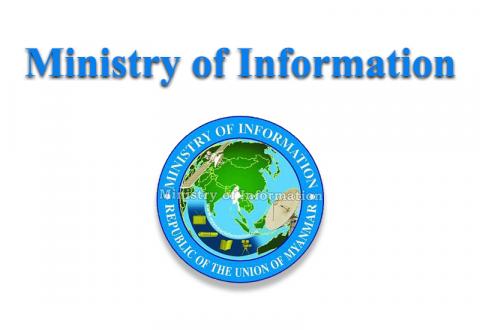Arrange preparations for safe migration
MIGRATION is a growing global phenomenon driven by factors such as climate change, armed conflicts, and economic disparities. According to the United Nations, over 281 million people migrated globally in 2020, and by 2021, more than 59 million people were displaced. The World Bank’s 2023 report adds that 184 million people, including 37 million refugees, were residing outside their home countries, representing 2.3 per cent of the global population.
One significant driver of migration is the search for employment. Globalization, differences in wages, economic gaps, and advancements in technology have spurred people to seek better job opportunities abroad. However, many migrant workers face exploitation, particularly from human traffickers. In Myanmar, 56 per cent of human trafficking cases occur domestically, while 44% happen abroad. Often, migrants seeking work encounter unsafe working conditions, becoming vulnerable to exploitation.
The situation worsened during the COVID-19 pandemic. Thousands in Myanmar lost their jobs due to the economic impact of the pandemic. The Ministry of Labour’s data shows that Myanmar’s unemployment rate increased from 0.17 per cent in 2020 to 3.69 per cent in 2023. This rise in unemployment is attributed to a lack of job opportunities, low wages, rising living costs, and unstable conditions in various regions.
Further exacerbating the issue are the international sanctions placed on Myanmar, which have directly impacted its economy. Manufacturers have been forced to reduce production, leading to job losses and lower incomes for workers. As a result, many people face severe socioeconomic challenges, including difficulties in affording basic necessities like food.
It is critical to arrange safe migration processes for workers to address these issues. Ensuring secure and legal pathways for migration, as well as protecting migrant workers from exploitation, is essential. Authorities need to work on improving employment opportunities domestically to reduce the pressure on people to seek jobs abroad. Additionally, stricter measures must be enforced to combat human trafficking and ensure that all workers, whether local or abroad, are treated with dignity and fairness.
A comprehensive approach that combines economic reform, worker protection, and secure migration pathways will help mitigate the challenges faced by migrant workers and improve the overall socioeconomic landscape. Most migrant workers are suffering from the impacts of bullying, labour exploitation, abuse of labour and labour charges and various forms of obstacles to labour issues. Sometimes, those migrant workers lose lives and limbs in their workplaces, but they do not deserve compensation. Whatever it may be, those migrant workers need to make necessary preparations to ensure the safety of migration.
#TheGlobalNewLightOfMyanmar

